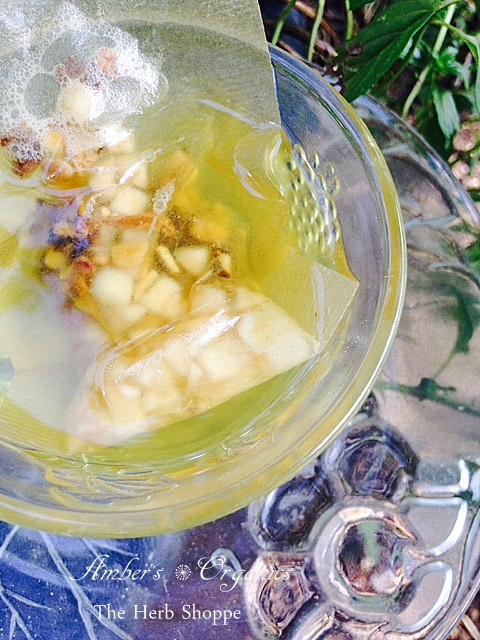Summer colds are here to stay....for a while. Persistent coughing, it drives me bonkers. So of course, I just had to try and create something to sooth and calm the constant hacking. I use Manuka honey in my cough drop tea for best results I find this to be a powerful nectar. Sip as often as needed, the tea is best sipped slowly and not guzzled. The natural decongestant and anti-inflammatory herbs work to gently calm irritation, and If needed, help you get off to sleep. Sleep is a healer too, sleep and herbs are the natural way to heal in harmony.
"Cough Drop" My tea for those persistent and irritating coughs.

Sage: Sage's strong scent, reminiscent of camphor, is particularly noticeable on sunny days, because its essential oils are drawn out by the sun and evaporate into the air. The high levels of these essential oils, its bitters, which stimulate digestive secretions, and its tannins, which improve resistance to infection, give sage its antiseptic and astringent properties. Which also makes sage an excellent gargle for sore throats, bronchial inflammation and irritated gums. Herbal tea may not be the first thing you think of when you think of sage, however, sage has many medicinal properties and contains a good amount of healthy antioxidants that makes it a great remedy to ward off colds in the winter.
Hyssop: Hyssop has healing effects in the treatment of respiratory infections, lung conditions and bronchitis. Used as a tea, it is a strong expectorant, which acts by loosening phlegm, thus relieving symptoms such as congestion, coughs, and hoarseness. As an antiviral it also helps rid the body of toxins that are produced by viruses. Hyssop can sooth the digestive tract and mucous membranes offering relief for sore throats. It also has natural sedative effects and can help to reduce fevers.
Thyme: Because of its essential oil, thyme possesses expectorant and bronchial antispasmodic properties, making it useful in the treatment of acute and chronic bronchitis, whooping cough, and inflammation of the upper respiratory tract. Thyme enhances the action of the cilia in the bronchi and directly acts on the bronchial mucosa. The terpenoids are responsible for the expectorant activity of thyme while a variety of flavonoids are responsible for the spasmolytic effect of thyme on the bronchioles.
NOTE! For best results I recommend you peel, chop and add 2 tsps of fresh lemon rind, add 1 tsp of your herbal "cough drop" dry tea and cover with a cup of hot water, allow to seep for 15 mins. Strain tea and add lemon juice from 1/2 a lemon, add a small amount of honey to improve this formula.
http://www.gardenofcures.citymax.com/catalog/item/6994310/10169444.htm

